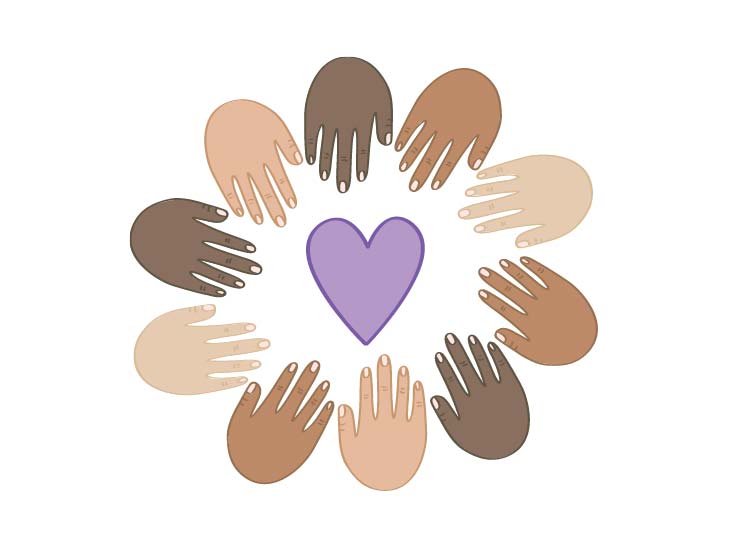Last year, we launched a series of home office events we called expressions of gratitude.
Employees were asked to pay it forward across our Massachusetts office by acknowledging another team and planning a small interdepartmental event.
Teams spent an hour with entirely different specialties; marketing with IT; finance with public relations. On its face, the goal was to say thank you (we're big fans of gratitude) and eat pizza.
But underneath, we had another important goal in mind.
Understanding how jobs and departments connect is what I like to call mental mobility - the partner to physically moving people to other departments. We talk a lot about the latter (and for good reason). But not everybody in a company is going to get the perspective of a job in a different specialty. Yet everyone should be encouraged to get a clear grasp of the bigger picture.
This is true for all of us. Understanding other departments - considering decisions from the financial or operations side - is critical. Familiarity can fill gaps, improve outcomes, and avoid redundancies. When employees can leverage personal relationships to solve problems - when they know exactly who to call and can pick up the phone to directly access a source instead of flailing around to try to figure out a problem themselves - they expedite decisions, prevent mistakes, and save everybody time, money, and headaches.
Large companies have to be deliberate. At Bright Horizons, we start early with onboarding breakfasts that connect departments from the beginning. One employee I know says she still leverages the legal and finance relationships she forged at her own onboarding breakfast seven years ago. We've had games at our annual awards dinner; contests in our Town Hall; trainings that purposefully bring remote and center employees to our home office.
We also know the importance of design and common spaces and coffee machines (remember the old expression, water-cooler talk?). We often hear companies with onsite child care say their centers are exceptional connectors, with people across levels and departments crossing paths daily to pick up and drop off children. It's an experience we've certainly had ourselves. It all seems like social engagement, but there's real business ROI underneath. And it's one of the many reasons positive business cultures have more than merely psychological value.
For us, the gratitude events really paid off. At the end, we heard from people who said they learned about roles they didn't even know existed. Which was kind of the point.
The pizza and conversation only lasted an hour; the business results will last a lot longer.
Employees were asked to pay it forward across our Massachusetts office by acknowledging another team and planning a small interdepartmental event.
Teams spent an hour with entirely different specialties; marketing with IT; finance with public relations. On its face, the goal was to say thank you (we're big fans of gratitude) and eat pizza.
But underneath, we had another important goal in mind.
Mental Mobility: Thinking Outside Your Department
To succeed as an organization - any organization - employees need to be rowing in the same direction. And that requires people to be familiar with colleagues across departments; not just who they are, but what they do. It's how you make sure people are working with the good of the whole company in mind - not just individual departments.Understanding how jobs and departments connect is what I like to call mental mobility - the partner to physically moving people to other departments. We talk a lot about the latter (and for good reason). But not everybody in a company is going to get the perspective of a job in a different specialty. Yet everyone should be encouraged to get a clear grasp of the bigger picture.
This is true for all of us. Understanding other departments - considering decisions from the financial or operations side - is critical. Familiarity can fill gaps, improve outcomes, and avoid redundancies. When employees can leverage personal relationships to solve problems - when they know exactly who to call and can pick up the phone to directly access a source instead of flailing around to try to figure out a problem themselves - they expedite decisions, prevent mistakes, and save everybody time, money, and headaches.
Positive Business Cultures - More Than Psychic Benefits
In a small company and certainly a startup, where departments (and perhaps even job descriptions) overlap, connections happen organically. It's not so easy in a larger company. You'd think hundreds of people in a big office would be bumping into each other all the time. But the bigger you get, the easier it is to get siloed to where one hand doesn't know what the other hand is doing.Large companies have to be deliberate. At Bright Horizons, we start early with onboarding breakfasts that connect departments from the beginning. One employee I know says she still leverages the legal and finance relationships she forged at her own onboarding breakfast seven years ago. We've had games at our annual awards dinner; contests in our Town Hall; trainings that purposefully bring remote and center employees to our home office.
We also know the importance of design and common spaces and coffee machines (remember the old expression, water-cooler talk?). We often hear companies with onsite child care say their centers are exceptional connectors, with people across levels and departments crossing paths daily to pick up and drop off children. It's an experience we've certainly had ourselves. It all seems like social engagement, but there's real business ROI underneath. And it's one of the many reasons positive business cultures have more than merely psychological value.
Navigating Growing Pains
At our company, we know personally that connecting becomes even more important - and arguably harder to do - as you grow from a startup around a kitchen table (as we once were) into a company with thousands of employees across the country and around the world (as we are today). But it's worth the effort.For us, the gratitude events really paid off. At the end, we heard from people who said they learned about roles they didn't even know existed. Which was kind of the point.
The pizza and conversation only lasted an hour; the business results will last a lot longer.





